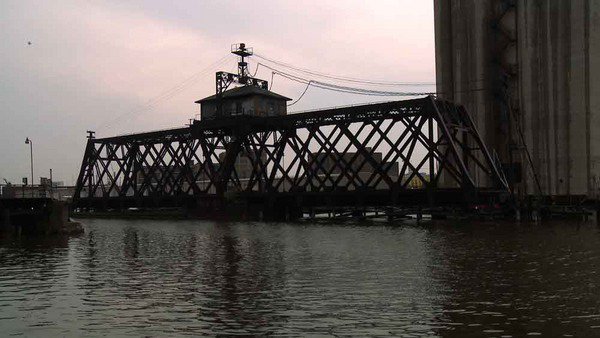Two Exhibitions
dal 14/11/2014 al 20/2/2015
Segnalato da
VOX - Centre for the Contemporary Image
14/11/2014
Two Exhibitions
Vox contemporary image center, Montreal
James Benning is a major figure of American cinema. In the late 1960s he directed his first short films in the experimental-cinema tradition. Working initially in sculpture, Jean-Marie Delavalle produced a few experimental works between 1970 and 1975: a select corpus of conceptual pieces.

James Benning
James Benning is a major figure of American cinema. In the late 1960s he directed his first short films in the experimental-cinema tradition, retaining its formal rigour and taste for conceptual constraints while pioneering the notion of “figurative narrative.” His films rest on an experience of time and perception in their relationship to space. They also approach the notion of place from autobiographical, cultural, political and historical viewpoints. Beyond formalist explorations, it is at (and to) America that he has always kept “looking and listening.”
One Way Boogie Woogie 2012 is a highly personal portrait of Milwaukee’s Industrial Valley, where James Benning grew up: he abstractly contrasts his own evolution with that of the area’s fading industrial presence. The installation progressively reveals itself to be a single ninety-minute film, constituted of eighteen stationary shots projected on six screens and synchronized according to an arithmetic progression. The work can be viewed as a linear sequence or as a laterally organized array of moving images.
Stemple Pass (2012), designed for the cinema, is a multifaceted portrait of Ted Kaczynski, the infamous “Unabomber”. In a replica of Kaczynski’s cabin, which he built himself, James Benning reads excerpts from the recluse’s notebooks (which he acquired from the FBI and decoded). This “structural thriller” enforces the artist’s preoccupations with duration, mathematics, nature, and political contrarianism.
----
Jean-Marie Delavalle
curated by Claudine Roger
Jean-Marie Delavalle’s work has been widely shown as part of group exhibitions and has been featured in a few solo shows in Toronto, but in Quebec, the artist has kept a relatively low profile for the past twenty years. Working initially in sculpture, Jean-Marie Delavalle produced a few experimental works between 1970 and 1975: a select corpus of conceptual pieces that were anything but eclectic, exemplifying a rigorous research process that investigated colour and perceptual phenomena. This practice is characterized by originality, and is decisively open-minded aesthetically.
He began working with photography in the summer of 1970, producing a series of images on wave motion, then self-portraits, and finally a series dedicated to different times of day. This led him to incorporate a number of variables into the work: different light, places and times, but also shifts dependent on specific features of the photographic apparatus and its functions (focus, infrared film, colour filters, etc.). Jean-Marie Delavalle also moved from purely visual experiments to works incorporating sound, creating a series of transcriptions of auditory phenomena heard during various travels (by car, by bicycle and on foot). By limiting visual clues to the nature of his creative process in this way, the artist forces us to invoke our imagination to grasp, for a moment, the “surrounding reality.”
Opening on November 15, 2014, at 3:00 pm
VOX - Centre for the Contemporary Image
2 Sainte-Catherine Street East (4th floor) Montreal Canada
Opening Hours:
Tuesday – Friday 12:00 to 7:00
Saturday 11:00 to 5:00
Free admission



